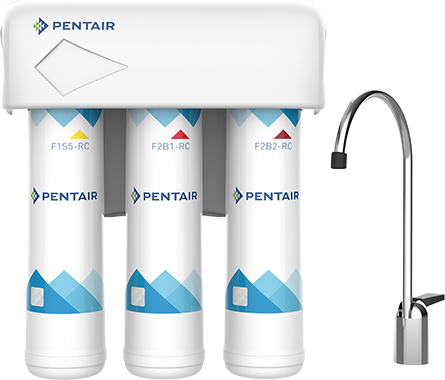Introduction And Editor’s Notes By Ocean Robbins: Two-Thirds Of All Americans Are Drinking Water With Added Fluoride. Is That A Good Thing, Or A Bad Thing?
Proponents of water fluoridation point out that, according to the Centers for Disease Control and Prevention, drinking fluoridated water reduces tooth decay and cavities by about 25% in children and adults.
The fluoridation of drinking water has been endorsed by the American Medical Association and the World Health Organization. A spokesperson for the American Dental Association has even said that every dollar invested in water fluoridation by a community saves $38 in dental costs. As a result, many people, including much of the medical community, think the fluoridation of our water supply is an entirely beneficial thing to do.
But there’s another, darker side to this story. Fluorosis is a defect in tooth enamel, caused by ingesting too much fluoride in childhood. It causes brown splotches and mottling of the teeth. The Centers for Disease Control and Prevention tells us that 41% of our adolescents today have fluorosis.
We can see our children’s teeth. We can see the brown and discolored splotches that are the telltale signs of fluorosis. But what about parts of our bodies that we can’t see? What is fluoride doing to our thyroid glands, to our brains, to our nervous systems, and to our hormones?
Studies have found that fluoride is a neurotoxin and an endocrine disruptor. Could the spots on nearly half of our children’s teeth be warning us of further damage?
There is a certain amount of topical exposure to fluoride that can prevent cavities. But with the addition of fluoride to the water supply, there is no control of the level of exposure that children and adults will receive. People have died from acute fluoride poisoning from public water supplies. Meanwhile, many scientists today believe that fluoride’s primary benefit to teeth comes, not from ingestion, but from topical application to the outside of the teeth.
Critics of water fluoridation say that common sense and common decency tell us not to use the public water supply to deliver any medicine. With most other medications, it is the patient, not the doctor and certainly not the government, who gets to choose whether or not to take a medication. With the addition of a medicine to our water supply, that right is taken away.
Critics of water fluoridation also point out that most western countries have rejected institutionalized fluoridation, without any detrimental effects on their teeth. And there is evidence that the incidence of many forms of cancer rises with water fluoridation.
The article below, written by Brian Bienkowski, tells of some recent studies that suggest that the fluoridation of our water supplies may be hurting us more than we’ve realized…
Three new studies link fluoride exposure to ADHD and thyroid problems — and point to drinking water as the major source of exposure.
By Brian Bienkowski • A version of this article was originally published on Environmental Health News
Two studies — one from Canada and one Mexico — released on October 10th, 2018, point to potential health problems from fluoride, which, in a majority of U.S. communities, is purposefully added to drinking water to protect people’s teeth.
The Canada study found that
adults who are iodine deficient and have higher levels of fluoride in their system have a greater risk of an underactive thyroid.
The Mexico study found mothers with higher fluoride exposure during pregnancy were more likely to have children with symptoms of ADHD. Both studies were published in the journal Environmental International.
A third study, published in Environmental Health Perspectives, found that among 1,566 pregnant women in Canada, fluoride levels in urine were almost two times higher for women who lived in regions where the element was added to their drinking water compared to pregnant women in regions with non-fluoridated water.
The studies call into question the practice of purposely adding fluoride to water or salt, which is done to prevent cavities and, to a lesser extent, osteoporosis. Many cities in the U.S. and Canada add fluoride to public drinking water, and in Mexico, it’s added to some salt. Approximately 66% of people in the U.S. receive drinking water with added fluoride, according to the Centers for Disease Control and Prevention (CDC).
About 80% of fluoride exposure comes from water and beverages, such as tea, which can leach fluoride from soil. Other sources include grapes and shellfish.
“I have grave concerns about the health effects of fluoride exposure,” Ashley Malin, lead author of the Canada thyroid study and a researcher at the Department of Environmental Medicine and Public Health, Icahn School of Medicine at Mount Sinai, told EHN. “And not just from my study but the other studies that have come out in recent years.”
Fluoride Dangers: High Amounts Of Fluoride May Contribute To Thyroid Problems
Malin and colleagues had massive amounts of information from the Canadian Health Measure study. They looked at fluoride levels in the urine of nearly seven million Canadians, as well as iodine deficiency and thyroid gland activity.
They found Canadians who were deficient in iodine — a mineral crucial for proper functioning of the thyroid — and who had high amounts of fluoride in their urine also had higher levels of thyroid stimulating hormones. Elevated levels of these hormones are a marker for a suppressed thyroid gland — commonly referred to as hypothyroidism, a condition that can cause a host of problems including fatigue, disrupted heart rates, and altered metabolism.
Small increases in thyroid-stimulating hormones can be problematic, Malin said.
“Someone doesn’t need to have full-blown hypothyroidism to have an elevation in [thyroid stimulating hormones]. Research is showing more and more that subclinical elevations are associated with bad health effects,” Malin said.
Iodine helps flush fluoride from the body, so a deficiency leaves the body with more fluoride, which has been shown to interfere with certain enzymes important for thyroid function. This could explain why only iodine deficient Canadians seemed sensitive to fluoride impacts.
Malin said 18% of the nearly seven million people they studied were iodine deficient. “We’re talking about potentially [more than] a million people at risk of an underactive thyroid due to fluoride exposure.”
Potential Benefits Of Fluoride For Oral Health
But there are major health benefits of fluoride in water. According to the CDC, drinking fluoridated water reduces cavities (also called tooth decay) by about 25% in children and adults. The agency named water fluoridation one of its “Ten Great Public Health Achievements” of the 20th Century.
Dr. Manish Arora, a dentist and Vice Chairman of the Department of Environmental Medicine and Public Health at the Icahn School of Medicine at Mount Sinai, told EHN via email that it “…is important to balance these results with what we know about the benefits of water fluoridation as well.”
“There have been tremendous gains in children’s oral health worldwide over the past decades that, at least in part, can be attributed to the beneficial effects of fluoride,” said Arora, who was not involved in any of the studies released today but is collaborating with some of the researchers on other projects.
While the new study doesn’t prove fluoride impacts thyroid function, previous studies have linked the element to reduced thyroid hormones, to elevated thyroid stimulating hormones, and an increased likelihood of hypothyroidism and diabetes in adults.
Fluoride Dangers: Mothers With High Fluoride Levels More Likely To Have Children With ADHD Symptoms
In the other study published today, researchers looked at 213 Mexican mother-children pairs and examined the mothers’ urine fluoride levels during pregnancy and assessed children for attention-deficit/hyperactivity disorder (ADHD) symptoms from ages six to 12. They found mothers with higher levels of fluoride during pregnancy were more likely to have children with ADHD symptoms, especially inattention.
It’s not clear from this study why fluoride may impact a child’s behavior, but it could be driving thyroid hormone insufficiency in pregnant mothers (which can lead to problems in their unborn), or altering children’s levels of dopamine, which moves signals from nerve cells to the brain and is vital for behavioral development.
Christine Till, an associate professor and a researcher at York University, told EHN one of her main concerns is that pregnant women are susceptible to iodine deficiency, which, according to the study from Canada, could leave the mothers-to-be with thyroid problems.
Also, fluoride easily crosses the placenta from mother to her unborn. The study is not the first to find a fluoride-behavioral link: A previous study linked the element to ADHD in U.S. children.
Dr. Howard Hu, a co-author of the Mexico study and an epidemiological researcher at the University of Washington, told EHN the research from Canada on fluoride levels in pregnant women “makes the results of this study from Mexico even more applicable to what might be going on in North America.”
Fluoride In Water: To Add Or Not To Add?
The evidence that fluoride may have negative impacts on health is building, Hu said, adding that one of the “most awkward features of this debate” is that it pits one branch of public health vs another.
Arora said, “As a dentist and environmental health scientist, I feel this is an opportune moment in our professions to have an honest discussion.”
“A question that is becoming increasingly important — is fluoridation of water supplies the best way to deliver the oral health benefits of fluoride?” Arora said. “For me, there is no ‘one size fits all’ answer to this. Socioeconomics, background risk, and other aspects of the community have to be considered, but now is the time to have the scientific debate.”
In a statement, the American Dental Association told EHN their National Fluoridation Advisory Committee would review the new studies, adding that “public health policy is based on a collective weight of scientific evidence, not the results of a single (or few) studies. The ADA remains committed to fluoridation of public water supplies as the single most effective public health measure to help prevent tooth decay.”
Hu echoed Arora and said the answer in moving forward with fluoride is more nuanced than being pro- or anti-fluoride.
“Clearly this warrants additional research and consideration with how policies related to fluoride may need to be rethought,” Hu said. “And not simply ‘do we use fluoride or not,’ but can we figure out a way to preserve the benefits while minimizing the potential adverse effects.”
Till said she is “certain the safety of fluoride ingestion has not been proven.”
“The problem is that it’s an uncontrolled dose — everyone is exposed to different levels. It may be prudent for pregnant women to reduce ingesting fluoride during pregnancy.”
Editor’s Note: What You Can Do About Fluoride In Water
Do you agree with the American Dental Association when the organization says that the “fluoridation of public water supplies” is “the single most effective public health measure to help prevent tooth decay”?
What about cutting down on soda pop and other forms of sugar consumption? What about a diet rich in bone- and tooth-building nutrients?
At Food Revolution Network, we’ve been repeatedly asked by our members what they can do if their water supply is fluoridated. One answer is to make sure your public officials know how you feel about this issue.
And if you don’t want to ingest fluoride, and you are drinking from a municipal water source that is fluoridated, you have several options. One is to buy bottled water. But when done frequently, that becomes expensive and environmentally damaging.
Another Option Is To Filter Your Water To Remove Fluoride And Other Chemicals.
Our members have asked us for recommendations for effective and inexpensive water filtration methods, and I wrote an article about it, here. The bottom line is that after extensive research, I concluded that the AquaTru provided the highest value for the price and represents somewhat of a breakthrough. You can find out more about it, get a special $100 discount, and support our work at the same time, using this link.
Water Fluoridation Affects All Of Us, So It’s Important To Engage In The Conversation. What Do You Think?
Tell us in the comments below:
Is adding fluoride to drinking water a good thing, or a bad thing?
What about toothpaste? Should fluoride be mandated, as it is when it’s added to our water supplies? Or should it be a choice?





About Simply PURE Water Filtration Services
Living in and serving the Long Island community, we strive to make sure everyone has access to clean, healthy water. We have the experience, knowledge, and industry-leading technology to provide clean water solutions for water impurities, contaminants, hard water, bad tasting/odors, well water, acidity & pH regulations.
Proud members of the WQA (Water Quality Association), and the EWQA (Eastern Water Quality Association), we adhere to strict guidelines and the WQA code of ethics. As a Pentair True Blue Partner and Authorized Distributor of Pentair Products, there’s nothing comparable to the performance, and efficiency of our whole house purification systems, water softeners, neutralizers, whole-house filters, and alkaline reverse osmosis systems for drinking in the convenience of your home.


Our products are all NSF / ANSI certified, meeting the highest safety standards and quality performance. Providing our community with only the best experience of high quality water that’s Simply PURE from our family to yours!
Simply PURE utilizes accurate testing methods before and after system installation, as well as annual maintenance of all your water treatment equipment. Our Revolutionary Custom Built Water Treatment systems upon the completion of a Free In-Home Water Analysis, or an in-depth Comprehensive Water Analysis of your choice sent to our Certified Laboratory.




